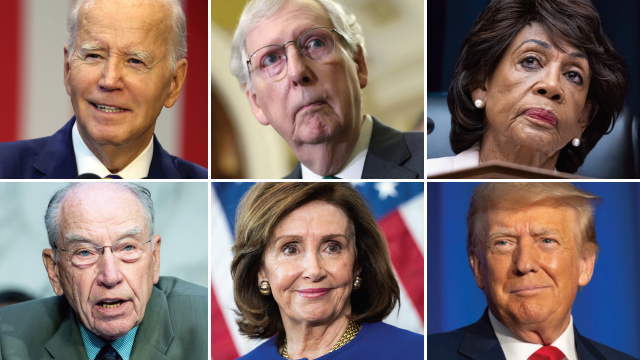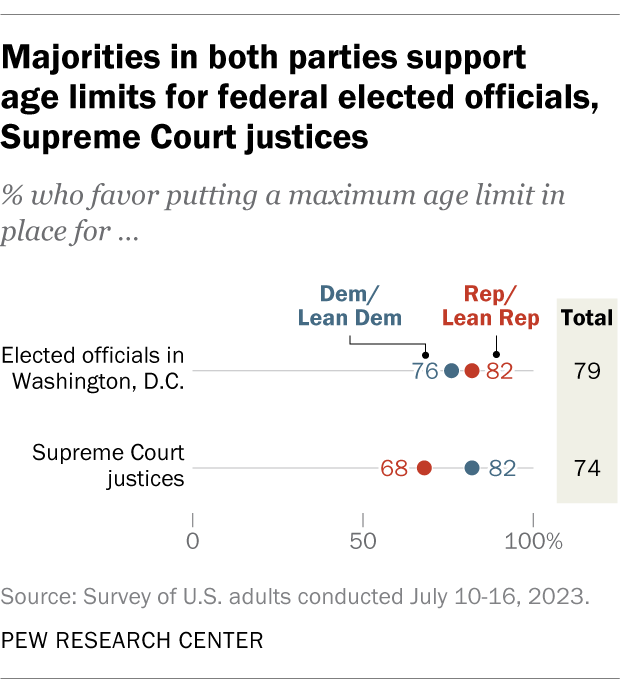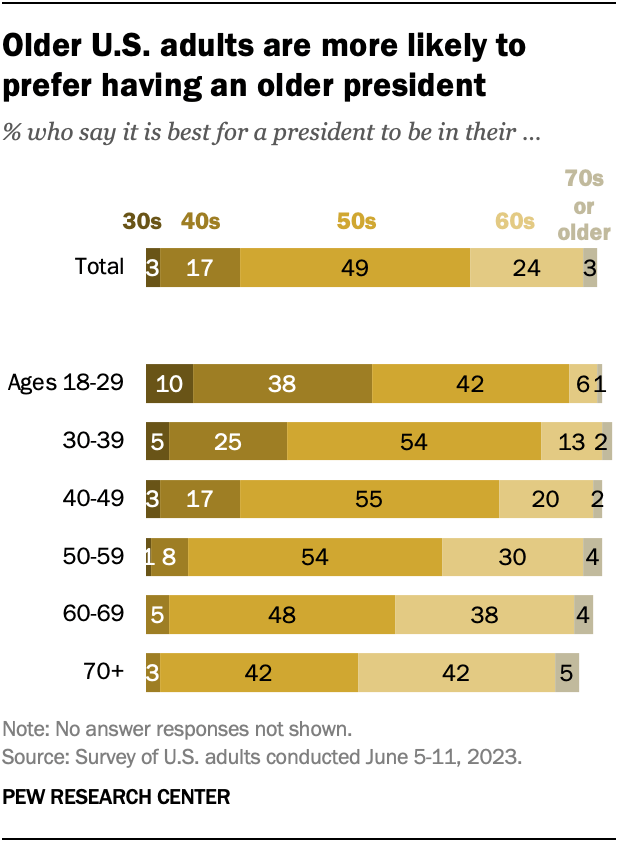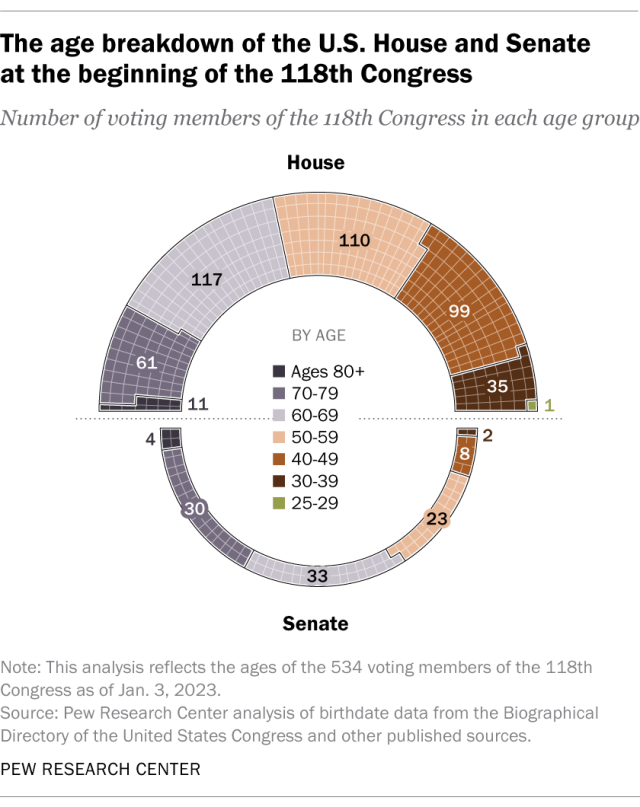
With the advanced age of some U.S. political leaders in the spotlight, 79% of Americans favor maximum age limits for elected officials in Washington, D.C. And 74% support such limits for Supreme Court justices, according to a new Pew Research Center survey.
This analysis highlights recent Pew Research Center findings about the age of federal government officials in the United States, including public attitudes about maximum age limits for elected officials and Supreme Court justices; public attitudes about the best age for a U.S. president; and data about the age of current U.S. presidential candidates, members of Congress and members of the Supreme Court.
Most findings in this analysis are drawn from previously published Center studies. Additional information about these studies – including survey field dates, sample sizes and other methodological details – are available by following the links in the text.

The survey finds majority support in both parties for maximum age limits for elected officials and Supreme Court justices. But Republicans and Republican-leaning independents are slightly more likely to support age limits for elected officials, while Democrats and Democratic leaners are considerably more likely to support them for Supreme Court justices:
- 82% of Republicans and 76% of Democrats support putting a maximum age limit in place for elected officials in Washington, D.C.
- 82% of Democrats and 68% of Republicans favor one for Supreme Court justices.
The U.S. Constitution sets minimum, but not maximum, age thresholds for presidents and members of the U.S. Senate and House of Representatives. The minimum age is 35 for presidents, 30 for senators and 25 for representatives. The Constitution does not set a minimum or maximum age for Supreme Court justices.
Creating maximum age limits for elected officials in Washington – while popular among the public – likely would require amending the Constitution. Constitutional amendments require a two-thirds vote in both the U.S. Senate and House, followed by ratification by three-quarters of the states. Alternately, Congress could call a convention to propose amendments if requested by two-thirds of the states, but that threshold has never been reached.
Views on the ideal age for a U.S. president
The Center’s new survey comes as Democratic President Joe Biden, who turns 81 in November, plans to run for reelection next year. His predecessor in the White House, 77-year-old Donald Trump, is running for the Republican nomination. A victory next November would make either man the oldest person ever elected U.S. president.

As of March 2023, Biden was the ninth-oldest national leader in the world, according to a Center analysis of heads of government in 187 countries that are member states of the United Nations. Trump is also older than most national leaders around the globe: At the time of the analysis, Trump was older than all but 20 of the leaders examined. The median age of all national leaders studied was 62.
Only 3% of U.S. adults say it’s best for a president to be in their 70s or older, according to a separate Center survey conducted in June. Roughly half of Americans (49%) say it’s best for a president to be in their 50s, while another 24% say it’s best for a chief executive to be in their 60s. There are relatively modest partisan differences on this question.
Median age of the U.S. Senate, House and Supreme Court
Age has become a focal point on Capitol Hill in addition to the presidential campaign trail. Democrat Dianne Feinstein of California, who died in September at age 90, had been the Senate’s oldest member. And Senate Minority Leader Mitch McConnell, an 81-year-old Kentucky Republican, has faced a series of recent health scares.

As of January 2023, the median age of the U.S. Senate was 65.3, according to a Center analysis conducted that month – up from 64.8 in the 117th Congress, 63.6 in the 116th and 62.4 in the 115th. The median age of Republican and Democratic senators was virtually identical (65.4 vs. 65.3).
In the U.S. House of Representatives, the median age for voting representatives was 57.9 as of January, slightly lower than in other recent Congresses. The median age of House Democrats was a bit higher than that of House Republicans (58.1 vs. 57.4).
When it comes to the Supreme Court, the median age of the nine current justices is 63. The oldest member of the court is Clarence Thomas, 75, while the youngest is 51-year-old Amy Coney Barrett.
